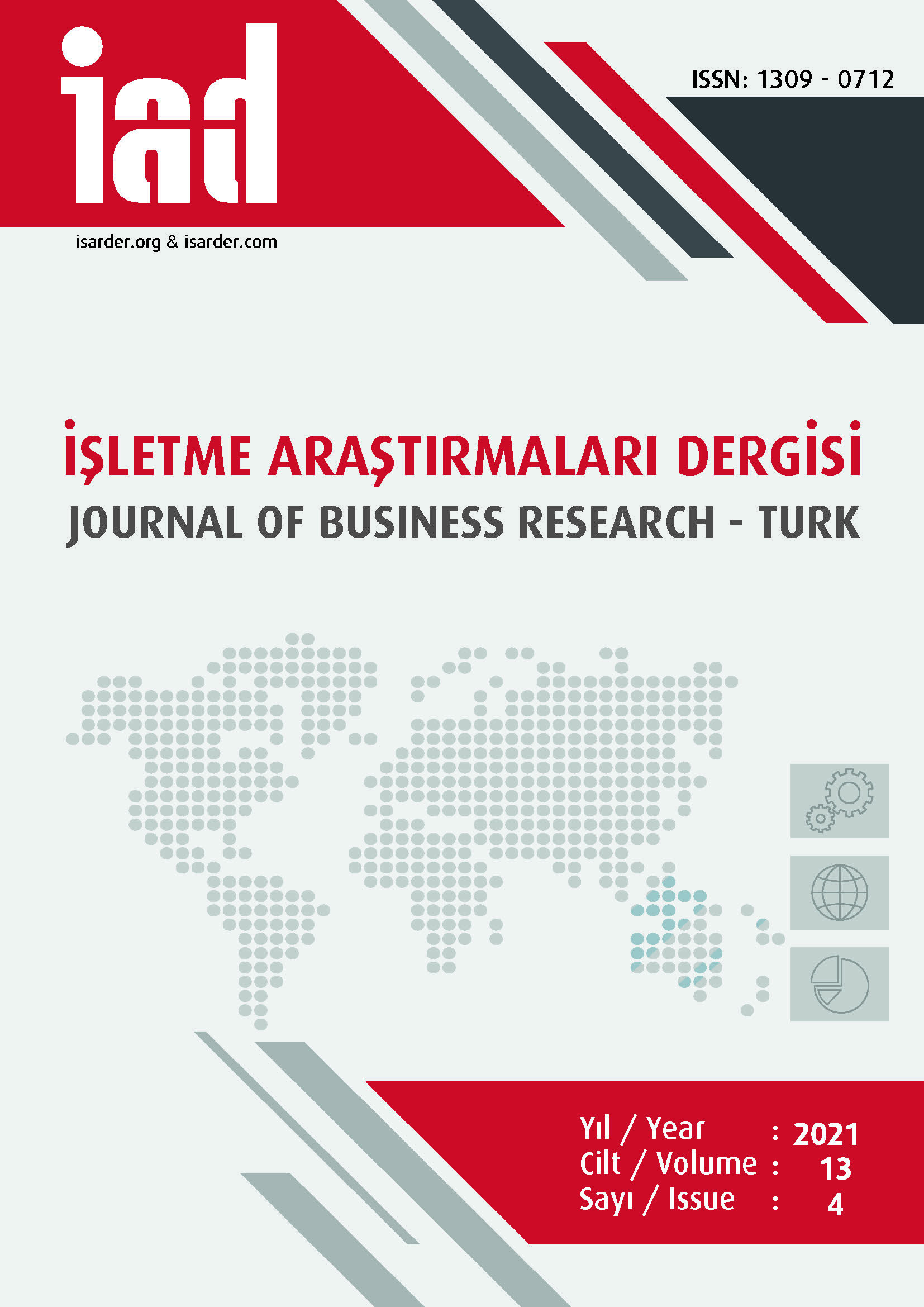Yöneticilerin Yetenek Yönetimi Yetkinliklerinin İşgörenlerin İşten Ayrılma Niyeti ile İlişkisinde Duygusal Bağlılık, Çalışmaya Tutkunluk ve İş Tatmininin Aracılık Rolü: Bankacılık Sektörü İşgörenleri Üzerine Bir Araştırma
DOI:
https://doi.org/10.20491/isarder.2021.1320Keywords:
Talent Management, Work Engagement, Affective CommitmentAbstract
Purpose –The main purpose of the study is to investigate the effect of the managers’ talent management competencies on the employees' intention to quit and whether the variables of affective commitment, work engagement and job satisfaction undertake a mediating role in this relationship. Design/methodology/approach – The data of the research were collected from 376 employees of 5 different banks operating in Antalya using the survey technique. The Talent Management Competencies Scale developed by Oehley (2007) was used to measure the perceived talent management competencies of managers in the study. The Utrecht Work Engagement Scale developed by Schaufeli et al. (2002) was used to determine the level of work engagement of employees. Affective commitment scale, which was developed by Allen and Meyer (1990) and is a part of the organizational commitment scale, was used to measure the affective commitment of employees. Minnesota Job Satisfaction Scale developed by Weiss et al. (1967) was used to measure employees’ job satisfaction. Rusbult et al .'s (1988) intention to quit scale was used to measure the employees’ intention to quit. The hypotheses of the research have been tested using structural equation modeling. Findings – Four hypotheses were tested in the study. Hypothesis 1 was accepted, which states that the managers’ talent management competencies have a direct negative effect on the employees' intention to quit. Hypothesis 2, which indicates the mediating role of affective commitment between managers’ talent management competencies and employees' intention to quit, was also accepted. Hypothesis 3, which indicates the mediating role of work engagement between managers' talent management competencies and employees' intention to quit, was not supported. Hypothesis 4, which indicates the mediating role of job satisfaction between managers' talent management competencies and employees' intention to quit, was supported. Discussion – Consistent with the literature, it is seen that the mamagers’ talent management competencies have a direct negative effect on employees’ intention to quit. In addition, again consistent with the literature, it is noteworthy that the affective commitment and job satisfaction of the employees play a mediating role between the managers’ talent management competencies and empleyees’ intention to quit. With the perception that their managers have high talent management competencies, talented employees whose affective commitment to the organization and their job satisfaction levels increase, move away from the intention of quit of the business. On the other hand, it is observed that the employees' work engagement does not have a mediating role between managers’ talent management competencies and employees' intention to quit. In this case, it can be said that the result obtained regarding the mediating effect of work engagement does not correspond to the literature. It is thought that this result may arise from considering the relationship of many variables at the same time in the context of the main model tested.
Downloads
Published
How to Cite
Issue
Section
License

This work is licensed under a Creative Commons Attribution-NoDerivatives 4.0 International License.





